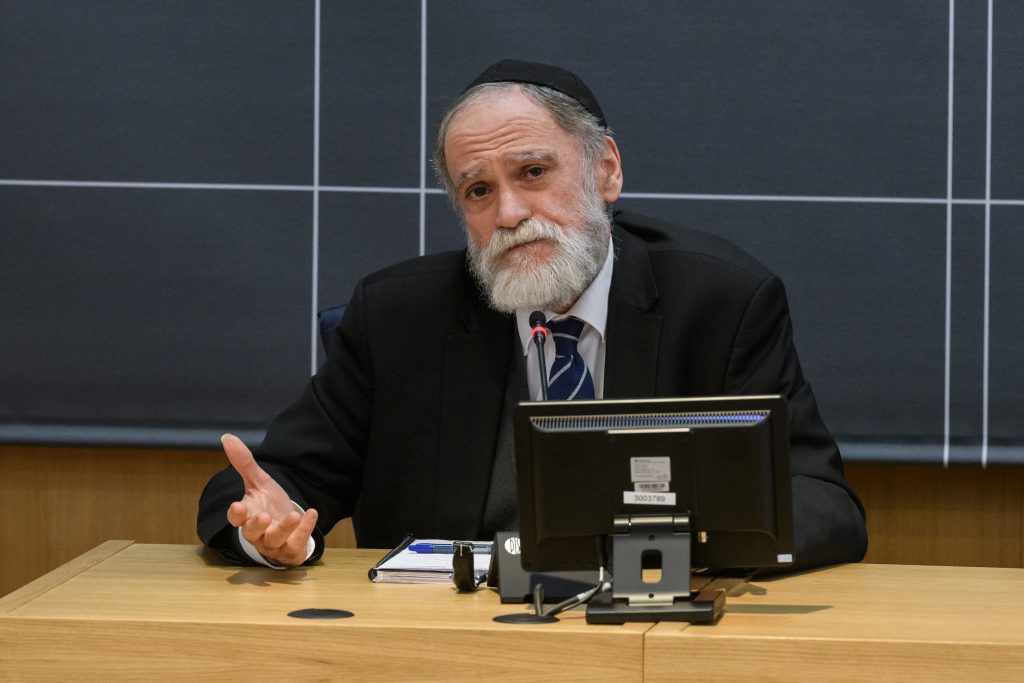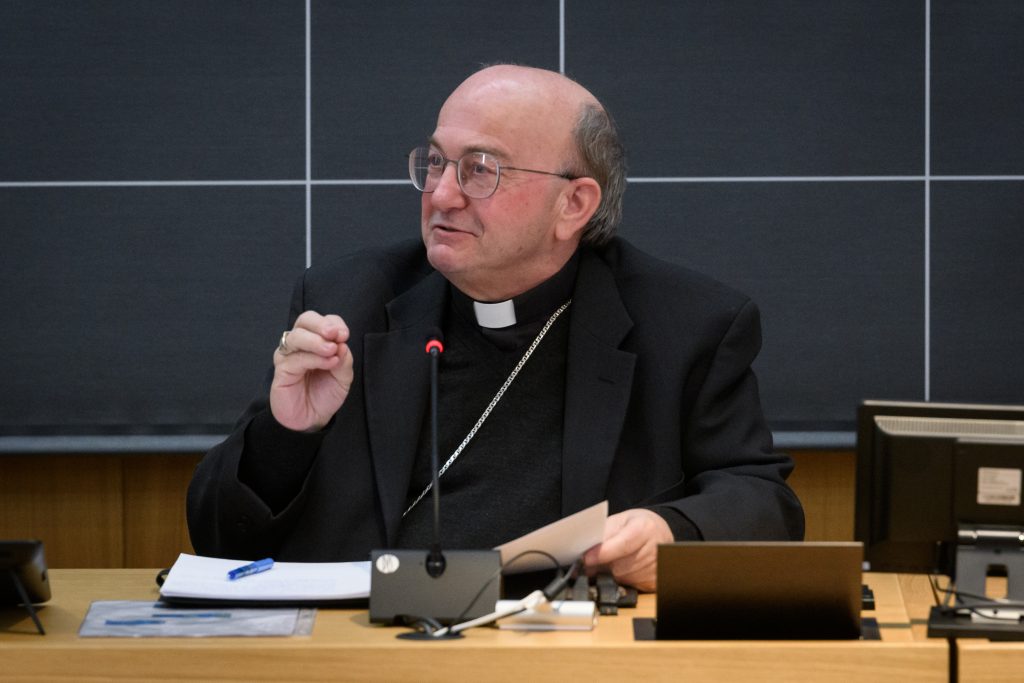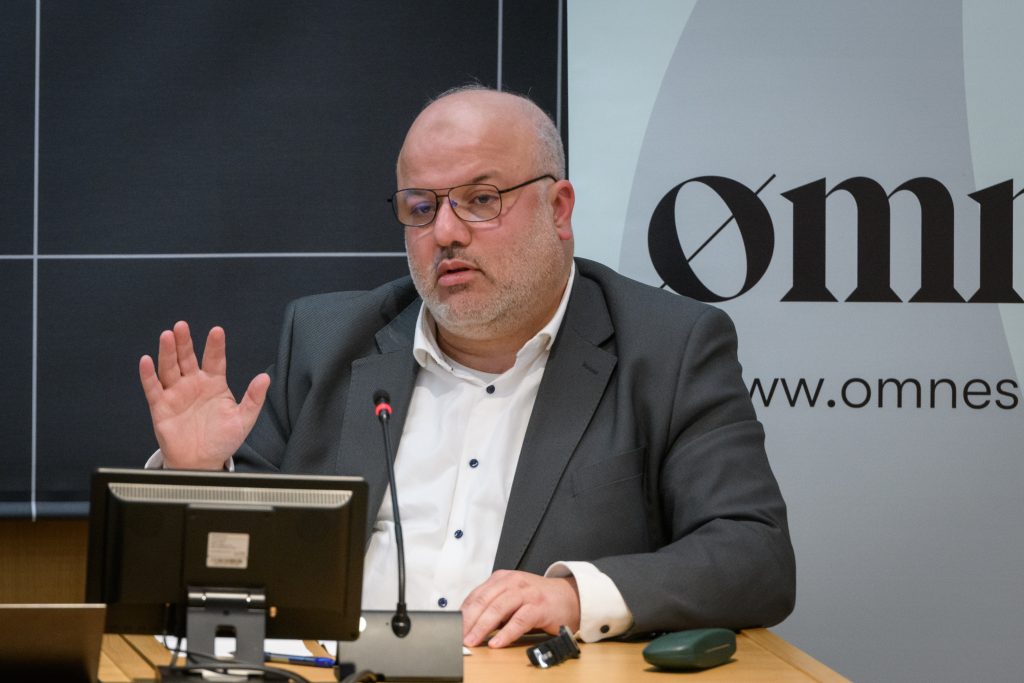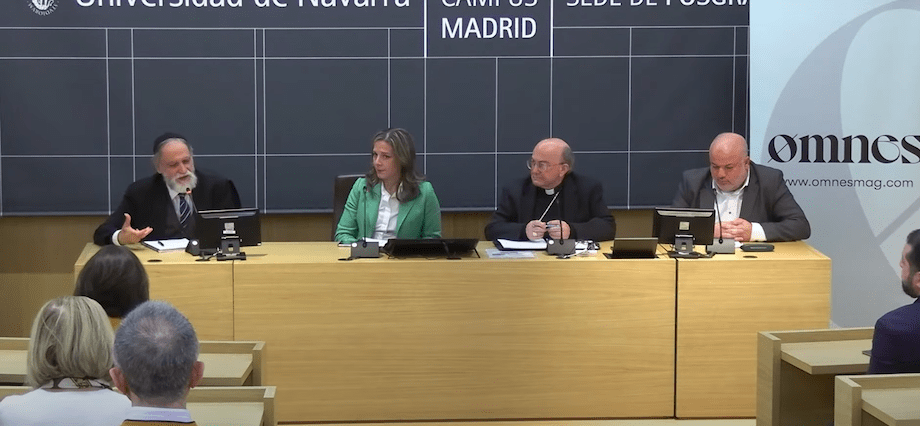The issue of forum Omnes was inspired by the Human Fraternity Day, which is celebrated on February 4. The event was preceded by the signature of the Interreligious Declaration on the Dignity of Human Life. Representatives of the Islamic Commission of Spain, various Orthodox patriarchates, the Spanish Reformed Episcopal Church, the Federation of Evangelical Entities of Spain and the Catholic Church participated.
Some representatives of these confessions are those who participated in the Omnes Forum. The guest speakers were the Chief Rabbi of Spain, Moshe Bendahan, the Secretary of the Spanish Islamic Commission, Mohamed Ajana El Ouafi, and the President of the co-organizing Episcopal Subcommission, Francisco Conesa. The interventions were moderated by María José Atienza, editor-in-chief of Omnes.
You shall love your neighbor as yourself.
The first to speak was the Chief Rabbi of Spain, Moshe Bendahan, who focused his presentation on a biblical verse: "You shall love your neighbor as yourself". This phrase is essential since, as the rabbi pointed out, "any human being has the inner value of love", and that is precisely the "divine essence" that unites us all.

However, Bendahan soon warned that "love requires work" and therefore it is necessary to discern the quality with which this essence is lived. To explain this, the Chief Rabbi used the metaphor of a cab in which there are two passengers, on the one hand our divine identity, and on the other, our ego. The vehicle is our own body and the driver, our mind.
This cab driver must have clear beliefs, among which is that "love of neighbor should govern our lives". To concretize his idea, Bendahan provided listeners with a definition of love, which is "the capacity to seek the good of others".
This is where, said the Chief Rabbi, the path of fraternity in interreligious dialogue must be sought. In such a way that we can "focus not on what differentiates us, but on what unites us", being able to "see the neighbor close to oneself".
God is Father of all
After Bendahan, it was the turn of Francisco Conesa, President of the Episcopal Subcommission for Interfaith Relations and Interreligious Dialogue. The first thing he emphasized was the characteristic of religions as "promoters of fraternity", especially taking into account that the three participating confessions recognize a "God who is the Father of all".

This universal fraternity is also linked to a second significant feature immediately pointed out by Conesa, which is that "in all our religions the essence is in the practice of mercy".
Knowing these characteristics, the bishop indicated that "among believers there should be particularly this fraternity because we all seek the face of God, we all pray and share the same experience". This allows us to "seek in our own tradition what moves us to dialogue".
As examples of this "culture of encounter", the President of the Sub-Commission mentioned the efforts made by the three confessions to "defend the right to be heard in the midst of society"; to become "sentinels of the poor"; the work aimed at "working for the care of the Earth, which is the Creator's work"; or the promotion of "the sacred meaning of all human life and the value of the family".
Finally, Conesa called on all representatives of the different religions to set an example of this dialogue.
God as Creator and Lord of all
Mohamed Ajana El Ouafi, secretary of the Spanish Islamic Commission, began his speech by pointing out that "the Koran begins and ends with the idea of God as Creator and Lord of all," which allows us to see humanity as a great tree.
Through this metaphor, the secretary pointed out the importance of not becoming obsessed with the small place we occupy in that tree. On the contrary, it is essential to recognize that "plurality is a characteristic of our society".

"Uniqueness," stressed El Ouafi, "is only proper to the Creator. In everything else we find differences", which is not bad in itself, but allows us to practice "mutual knowledge to build bridges of coexistence".
Mohamed then went on to enunciate some proposals to boost interfaith dialogue, including "favoring and promoting mutual knowledge; presenting oneself to others (members of other faiths and the media) to avoid misunderstandings; raising awareness to foster a culture of encounter among members of different religions, focusing on what unites us; and cooperating, not settling for mere coexistence."
To conclude his presentation, El Ouafi pointed out that "it is important to avoid useless discussions. What we must do is to work so that "religions can do their bit in relation, for example, to the care of the environment or the organization of human resources".
After the speakers' interventions, the moderator opened the floor to questions from both the audience and the listeners for the following reasons streaming.
The full video of the forum can be seen below:








